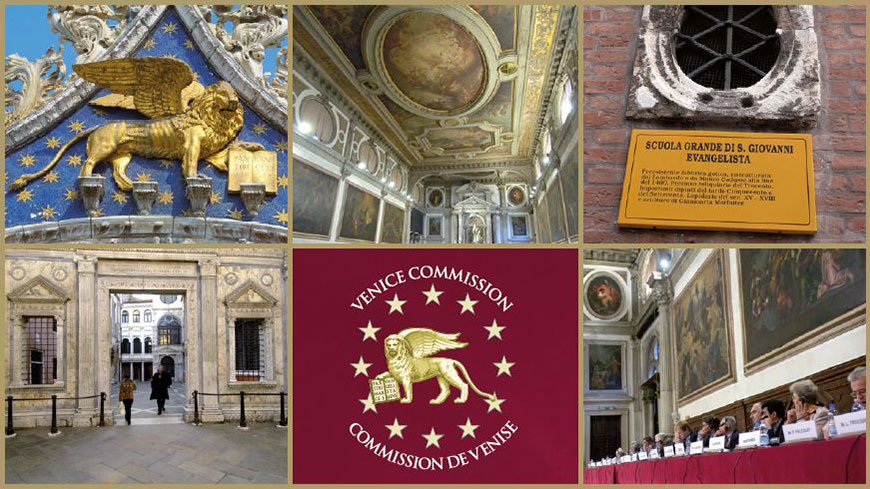During its 126th plenary session, held on 19 and 20 March, the European Commission for Democracy through Law of the Council of Europe (Venice Commission) adopted an amicus curiae opinion for the Constitutional Court of the Republic of Moldova on three legal questions concerning the law-making procedures in parliament.
The amicus curiae request relates to the proceedings brought before the Constitutional Court of the Republic of Moldova by a group of MPs from the parliamentary opposition concerning two laws passed in two readings by Parliament on 3 December 2020: Law no. 218 concerning some powers of the President of the Republic of Moldova regarding the Intelligence and Security Service, and Law no. 217 regarding the transfer of real estate from the public property to the Embassy of the United States of America.
After analysing the questions posed by the Constitutional Court, the Venice Commission reached the following conclusions:
- It is clear that a Constitutional Court may exercise procedural review of the legislation with reference to the specific rules of law-making entrenched in the Constitution. Many Constitutional Courts go further, and construe general principles contained in the Constitution as implying some specific procedural rules. The Constitutional Court may disregard provisions of the Rules of Procedure if they deviate from such rules, either directly stated in the Constitution or inferred from the general principles thereof.
- The constitutional review exercised by a Constitutional Court (or another equivalent jurisdiction) must always be based on constitutional norms. As a rule, a Constitutional Court should not rely in its analysis on norms that are not constitutional, but of a lower (legislative) level, unless the Constitution itself or an entrenched legislation explicitly gives the Court this competency.
A constitutional court may, at the same time, give a de facto effect to certain rules contained in the Rules of Procedure if it decides that these rules are dictated by the Constitution. However, it should not try to enforce each and every rule contained in the Rules of Procedure, because the Constitution may sometimes only set a minimal standard and let the legislator choose amongst different possible ways of putting this standard into practice. If a procedural fault is of such an import as to be characterised as an unconstitutionality, the constitutional court must intervene. At the same time, it is evident that more technical rules of internal regulations must be left to parliamentary appreciation.
The opinion was prepared under the Quick Response Mechanism (QRM) in the framework of the European Union/Council of Europe joint programme Partnership for Good Governance, funded by the European Union and the Council of Europe and implemented by the Council of Europe.





